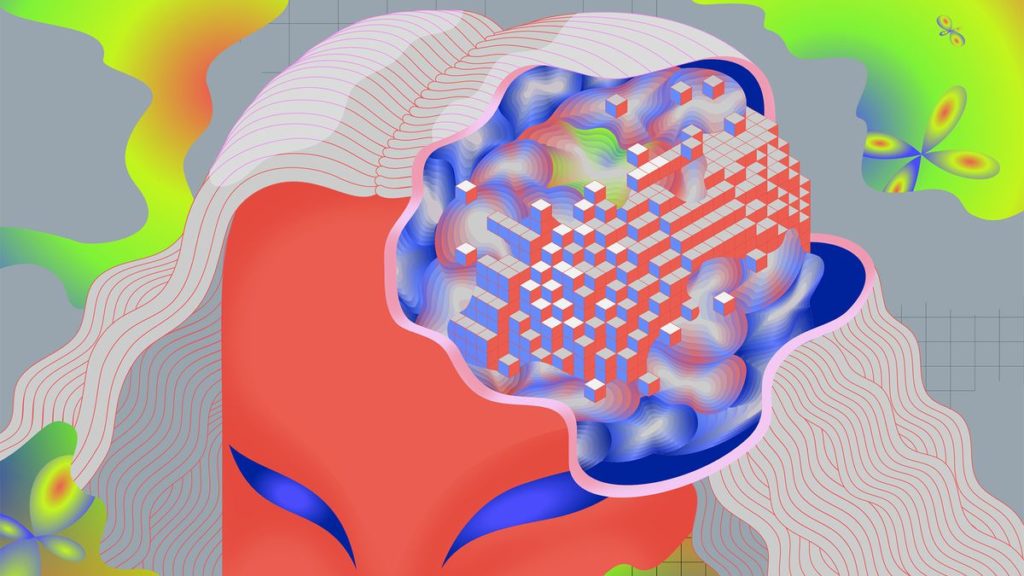Over 45 million people in America alone are coping up some kind of mental illness. The nature and scope of their treatment can also vary tremendously. Can Artificial Intelligence help?
AI enabled facial analysis is helping researchers in assessing mental health. In an objective manner, by managing algorithms detecting behavioral biomarkers instead of subjective exams, it may be possible to bring some significant changes, as reported the Wall Street Journal report on April 1.
An associate professor of computer science at Carnegie Mellon University, Pittsburgh, Louis-Philippe Morency is one of the many scientists working on this case. Morency and his colleagues at the Carnegie Mellon and the University of Southern California have successfully established over a dozen such biomarkers for specific conditions like post-traumatic stress disorder, depression, suicide, and schizophrenia.

Morency’s statement to the Wall Street goes like, “We built a dictionary of these behavior markers for different mental health disorders. The technology gives you a summary of these behavior markers and we can use it as part of a treatment to see how that person is behaving today compared to a month ago.”
Advancement in the field of artificial intelligence is making psychotherapy important to people. In fact, it is obvious that AI for any sort of mental health illness could change the game altogether.
Innovative technology is gradually introducing multiple opportunities to millions in America with mental health illnesses. Nevertheless, it is important to understand the benefits of these innovative methods and understand the limitations too. The long-term, benefits of AI for mental illness are still being tested, though the initial results look promising.
Mental Health Disorders Are Getting Expensive in America
The National Institute of Mental Health (NIHM) reports that one out of every five adults in America, which is 17.9 percent, experiences some kind of mental health problem. Mental disorders not only reduce the quality of life of patients but also increase expenditure. The founding director of the Center for Sustainable Health Spending at the Altarum Institute in Ann Arbor, Michigan, noted that mental health disorders such as dementia and others are now on top of the list of high-cost medical conditions.
Americans spend $201 billion or so, annually, on mental health. As people age, there is an increasing prevalence of mental health conditions like dementia. The cost of treatment pushes to a much higher figure as new management techniques and strategies are required.
As the cost of treatment is very high, many individuals prefer not to receive professional help. In addition, there are other contributing factors like lack of therapists and social taboo.
AI for Mental Health
Researchers at the University of Pittsburgh and Columbia are conducting a clinical trial to test whether smartphones could possibly detect some biomarkers of mental illness in adolescents. The clinical trial would involve 200 to 300 teenagers participating for a period of six months. All participants, as well as their parents, have given their consent for the trial. Participants’ phones shall be monitored by the research team solely for the purpose of the study.
Privacy shall be of paramount importance, said Morency. This means a major part of the study would be about discovering the non-identifiable behavior markers from smartphone data. The Columbia trial is also prepared to collect information from smartphones, which includes voice recordings and selfies. Researchers shall collect words and other data shared by teenagers on social media sites and in emails or texts. Information tracking whereabouts shall also be accounted for.
When trained to recognize potential markers, depressed or stressed people fail to enunciate vowels whereas suicidal individuals who speak in a husky or breathy tone are expected re-attempt suicide than if they talk in a tense voice. However, Morency added, “This doesn’t mean if you suddenly have a breathy voice, you are suicidal. This is one sign that the doctor should be able to use as they are doing their assessment.”
Smartphones could be instrumental in providing some objective data contributing to the ultimate diagnoses of patients. This technology is meant to work as a supplementary tool to traditional doctor’s or medical officer’s assessment.
AI can literally sense an individual’s facial expressions as well as behaviors to assist doctors to do their objective mental health assessment properly, according to Louis-Philippe Morency. Experts are of the opinion that AI has potential in mental healing and care where the evaluations are purely subjective and based on patients’ reports alone. But, of course, there are strong questions about cost, privacy, and implementation of AI in the marketplace compared to the lab.
Final Word
Even though AI shows potential and might have a promising future for mental health conditions, it is facing difficulties in real-life application. An assistant professor of psychology at Miami University, Joshua Magee, published a study examining mental-health apps that are not regulated. He suggested that users must be cautious and use apps only after discussing with a doctor or mental health professional.
sepStream® uses advanced diagnostic tools and methods to provide high quality and accurate imaging results.